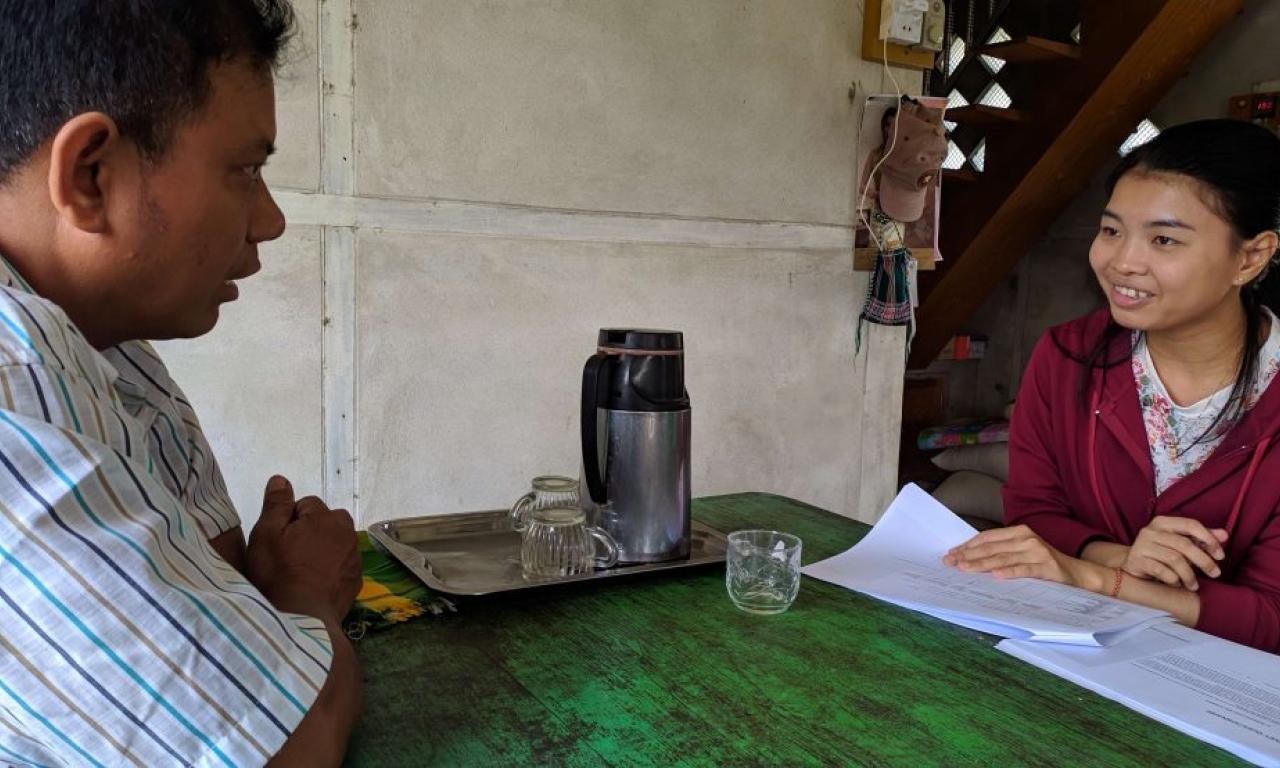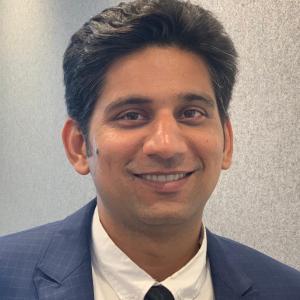
WorldFish is a global leader in aquatic food systems research and innovation for healthy people and planet. Science and partnerships are the foundation of our work. Our team delivers robust evidence to policymakers and technological innovations to producers, value chain actors, and consumers in order to transform food systems. In this series, we profile our emerging scientists, early career researchers who are already making a significant contribution to fisheries and aquaculture.
WorldFish is a global leader in aquatic food systems research and innovation for healthy people and planet. Science and partnerships are the foundation of our work. Our team delivers robust evidence to policymakers and technological innovations to producers, value chain actors, and consumers in order to transform food systems. In this series, we profile our emerging scientists, early career researchers who are already making a significant contribution to fisheries and aquaculture.
Yee Mon Aung is a doctoral candidate at the Institute of Agricultural Science in the Tropics at the University of Hohenheim in Germany. Prior to joining her PhD program, she worked as an assistant lecturer at Yezin Agricultural University, where she acquired seven years of experience in research and academia. Her doctoral research investigates the potential of Myanmar’s aquaculture sector to provide alternative livelihoods and income-generating activities, as part of the WorldFish-led SPAITS project. Aung’s research explores small-scale aquaculture’s capacity to improve food and nutrition security, alleviate poverty, and advance gender equality.
What are you currently working on for WorldFish?
As a PhD student at the University of Hohenheim, I am working on the Scaling Systems and Partnerships for Accelerated Adoption of Improved Tilapia Strains (SPAITS) project led by WorldFish. The SPAITS project aims to distribute enhanced tilapia and carp strains to small-scale farmers in Africa and Asia, while funding genetic research to identify new desirable traits. SPAITS enhances the capacity of small-scale aquaculture farmers so they can build resilient livelihoods with new economic opportunities.
My research specifically focuses on fish demand, alternative livelihoods, and the economic outcomes of the small-scale aquaculture sector in Myanmar. I am working to understand aquaculture’s role in advancing the Sustainable Development Goals, specifically ending hunger through local food production and improving gender equality by empowering women with novel employment opportunities.
What’s the most exciting thing about your research area?
I’m excited by both the challenges and opportunities posed by small-scale aquaculture households: finding ways to overcome the obstacles and constraints while investigating the extent that aquaculture development can contribute to food and nutrition security. For instance, rearing small fish in homestead ponds can increase access to nutritious foods to fight malnutrition in isolated rural communities.
Research in the aquaculture sector will inform the adoption of alternative livelihoods and good nutrition, allowing both farming households and non-farming households to work together in aquatic food value chains. It’s exciting how diverse local actors can collaborate to increase the production, distribution, and consumption of nutrient-rich aquatic foods.
What’s the most memorable situation you’ve found yourself involved in during your research?
There were two extremely memorable situations for me that left an impact. The first was during a workshop for the introduction of the SPAITS project. During the workshop, WorldFish scientists from various countries shared their current research and achievements to learn from one another and encourage their colleagues’ successes. I personally learned a lot from this workshop, on how all WorldFish employees fulfill project goals in partnership with one another.
Another memorable situation was during a field survey of rural households in Myanmar, where logistical difficulties arose from limited road infrastructure. It was difficult to reach the villages, but the interviews were eventually successful. When enumerators conducted the interviews at the respondents’ houses, both males and females actively participated in the interview process. We obtained invaluable insights due to the respondents’ cooperation, their genuine interest in the project, and gender balance.
What’s your favorite part of the research process and why?
My favorite part of the research process is going into the field for surveying, to capture different social, economic, and environmental aspects of fish-farming and the livelihood activities of the small-scale fish farming households. Using the empirical evidence from my interviews with farmers, I can help them overcome challenges and constraints related to their fish-farming activities.
What innovation do you think has the greatest potential to change your research area in the country you are working in?
There is a multitude of challenges faced by small-scale aquaculture farmers in Myanmar; a combination of technology and innovation is needed to alleviate their burdens. Despite abundant natural resources in-country, small-scale farmers face several constraints in access to resources, including land-use restrictions and limited access to high-quality inputs. I think innovations targeted at technical efficiency, fish productivity, income-generation, and gender equality are the most important to overcome the intersecting obstacles to aquaculture production.
Reforming the current Farmland Law 2012 would also advance small-scale aquaculture development. The law prohibits the conversion of agricultural land into fish ponds, which prevents farmers from entering the aquaculture sector legally.
What piece of scientific research have you conducted in the past 12 months are you most proud of and why?
Myanmar is one of the major consumers and producers of fish globally. However, there is debate among policymakers if the aquaculture sector can compensate for the current stagnation in capture fisheries to meet growing household demand. To scale aquaculture production in-country, my doctoral research quantifies fish demand in households and compares it to the production outputs of small-scale aquaculture farmers. I measure the production efficiency of existing operations and also investigate the causes of inefficiency.
I am proud that my research confirmed that the rapidly growing aquaculture sector can compensate for the decline of capture fisheries and adequately meet national fish demand. However, the study’s findings suggested that more effective management policies and new technologies are needed to sustain the fish supply from both capture fisheries and aquaculture. Since women’s empowerment enhances the technical efficiency of fish farming, policies and intervention programs aiming to increase aquaculture productivity should also focus on gender equality.
What do you hope your research achieves?
I hope that my research will support policymakers, stakeholders, and non-governmental organizations to implement the appropriate and adaptable intervention programs – these targeted interventions can further develop the small-scale aquaculture sector, empower women, and advance alternative livelihood projects. By determining production inputs and outputs in the small-scale aquaculture sector, as well as the corresponding livelihood outcomes, I hope to help design future programs and policies that effectively build the capacity of the small-scale aquaculture sector.
What would your dream role be in your research area?
I dream of facilitating access to new and improved technologies to farming households across the country, in order to improve their production and income. To sustainably increase aquaculture production long-term, the subsector needs to be more inclusive of smallholders through land-use reforms, diversification of fish species, higher-quality inputs, and new production technologies. Therefore, my ultimate goal is to disseminate evidence-based research to policymakers, helping guide decisions that advance small-scale aquaculture development and improve the lives of vulnerable people.
